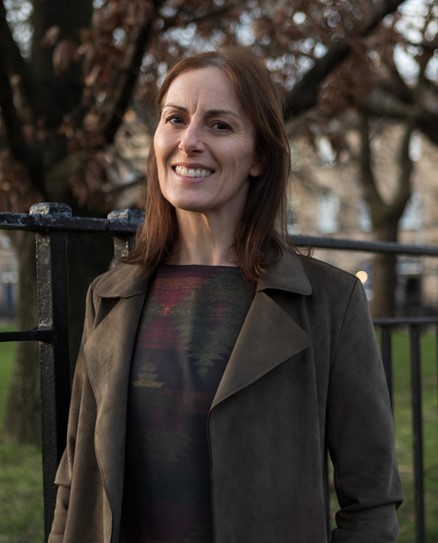The child health psychology service offers the opportunity to talk with someone who is trained in emotional wellbeing.
We offer talking therapies - a chance to talk about what is important to you, practice some coping strategies and do a bit of problem solving.
You may be a bit unsure about coming along. Some people wonder: “Can they read my mind!? Or do they think I’m making it up?!?” This is not what we think. The psychologist is part of the medical team looking after you. This is because we understand that feelings are an important part of our overall health and wellbeing.
Psychologists do not prescribe medication. In this service, we do not diagnose mental health or developmental conditions. But we can link in with mental health colleagues if we agree that this would be helpful for you.
How do feelings affect our health?
Our physical and emotional health are linked, and you can’t look after one without looking after the other.
We all get excited, worried, sad, angry (and lots of other feelings too). The way we feel about things affects what we do about them. For example, if we feel worried about catching up with tasks at school, college, or work, we might avoid doing them, then get further behind and worry more. Feeling worried or stressed like this, makes us tired and slows us down and we have less energy to focus on our health and getting better.
Stress can also make some physical symptoms, such as headaches and stomach pain, worse. All of this can get in the way of you living your life in the way that matters to you. Sessions will be focused on living life your way and reducing the impact of physical health symptoms on your day-to-day life.
General information on what psychology can help with and how psychology can help can be found back on the main page.
11-20 psychology service
People aged 11-20 who have hospital appointments because of a physical health condition or symptoms.
At the moment there are 2 main services:
-
Persistent physical symptoms (PPS). This supports people with long-standing physical symptoms. This could be chronic fatigue, headaches, or irritable bowel syndrome.
-
Long-term health conditions. This supports people with long-term health conditions. This could be epilepsy or diabetes, etc.
Paediatric clinical neuropsychology
This service supports consultant paediatricians in their assessments. It enables them to provide the best recommendations for your pre-school child. This is in particular those who were born prematurely (on or before 28 weeks' gestation). Or it could be where there are some specific queries about neurodevelopment.
The psychologist will gather information about your child’s early development from the medical team, other professionals involved in their care and the family. There may also be a couple of sessions with you and your child to complete some puzzles and tasks to assess specific areas of development such as concentration, vocabulary, and memory etc. Plus, a session where the outcomes and recommendations are discussed with you.
Neonatal care
The perinatal period can, for some families, include an episode of specialist care for the baby. The emotional wellbeing of the family is a central consideration during this difficult time.
You, as parents, need to be fully involved in planning your care to ensure you feel informed and engaged. You will be working with the clinical team to be the primary care provider for your child in the Special Care Baby Unit (SCBU).
The psychologist works as part of the SCBU team to support family-focused care as a whole-unit approach, with everyone delivering compassionate care for the families that we serve.
Caroline Bryant, clinical psychologist
Hi, I am Caroline, and I work as a clinical psychologist in child health. I work all over the trust supporting young people with long-term and complex physical health needs. My specialist area is working within the Persistent Physical Symptoms (PPS) service, helping support young people who have longstanding physical symptoms such as fatigue or pain.
I have also worked with diabetes, pain and HIV in adult services. I am currently studying paediatric clinical neuropsychology at University College London so that I can develop my skills in specialist neuropsychological assessments. I aim to providing super detailed assessments to help the paediatricians support young children, particularly children born prematurely or when there are queries around developmental delay.
When I am not at work, you can mostly find me outdoors. I enjoy daily sunrise dips in the North Sea, paddleboarding, horse-riding and walking.
Dr Gail Dovey-Pearce, consultant clinical psychologist 
Gail is a consultant clinical psychologist in paediatrics, and head of health psychology for Northumbria Healthcare. She works with young people with long-term health needs, who are navigating their teenage years with these added health challenges. She also works with families whose babies are being cared for in the Special Care Baby Unit.
Her goal is to enable children, young people and families, to live full and active lives. As head of service, her vision is to support the health psychology team to build psychological and emotional care into every healthcare contact across the organisation.
Gail is a graduate of the University of Newcastle upon Tyne and is currently studying part-time at Oxford University, for the Postgraduate Certificate in Health Research. A long-standing research interest has been to support the active involvement of young people, and other groups and communities, in developing healthcare services that better meet their needs.
She also has roles as a member of the Association of Young People’s Health Advisory Council, and an associate editor of the Journal of Clinical Child Psychology and Psychiatry.
We are a part of the physical health team. If you have been referred to a consultant paediatrician, they can make a referral directly to the 11-20 psychology service.
We will review the referral to see if this is the best service for you.
The referral will be added to a waiting list. The paediatrician will be notified about how long the wait should be.
We aim to respond as promptly as possible. The average waiting time is 10 weeks.
You will be invited to an initial assessment session. Here you will get an opportunity to ask questions about the 11-20 psychology service. We will set some goals for what you would like to focus on in the sessions.
Appointments will be arranged directly with you or by telephone or letter. If, for any reason, you cannot attend, please let us know as soon as possible. If we don’t hear from you, we may presume that you no longer want psychological support and may discharge you from the service.
